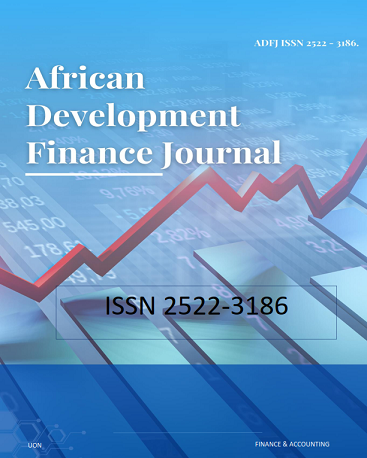The Effect of Firm Attributes and Board Structures on Financial Distress of Non-Financial Firms in Nigeria
Abstract
Major global corporations, such as Swissair, Enron, Arthur Andersen, WorldCom, Parmalat, and Silicon Valley Bank, unexpectedly suffered financial distress and eventually failed, resulting in severe consequences. Despite being previously perceived as stable, their bankruptcy shocked researchers, analysts, and industry professionals. Previous studies examining the effect of firm characteristics and board structures on financial distress reported inconsistent findings. The system-generalised method of moments (SGMM) model was used in the research to investigate the impact of firm characteristics (such as leverage, profitability, and sales growth) and board structures (such as board size and independence) on the degree of financial distress experienced by a sample of listed twenty non-financial companies in Nigeria between the years 2011 and 2023. The findings showed that board structure (both size and independence) and firm attributes (leverage profitability and sales growth) significantly impact the Altman Score, indicating better financial health or lower financial distress. Nigerian publicly traded firms should adhere to and practice excellent corporate governance procedures. This would result in a rise in the trust of investors, regulators, and other stakeholders. Businesses must place a larger emphasis on financial information, particularly profitability and sales growth, all of which have been shown to affect financial distress.
Keywords: board size, board independence, leverage, profitability. Sales growth

